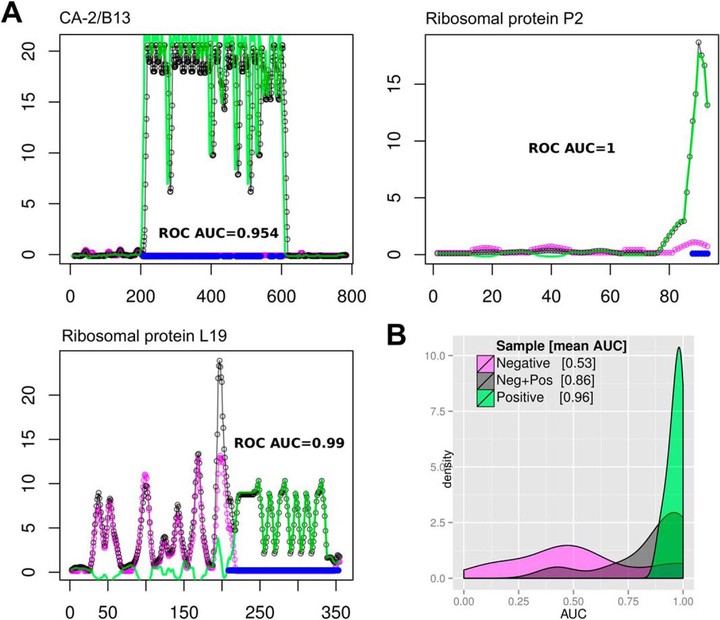Towards High-throughput Immunomics for Infectious Diseases: Use of Next-generation Peptide Microarrays for Rapid Discovery and Mapping of Antigenic Determinants
 Mapping epitopes with high precision using high-density peptide arrays
Mapping epitopes with high precision using high-density peptide arrays
Abstract
Complete characterization of antibody specificities associated to natural infections is expected to provide a rich source of serologic biomarkers with potential applications in molecular diagnosis, follow-up of chemotherapeutic treatments, and prioritization of targets for vaccine development. Here, we developed a highly-multiplexed platform based on next-generation high-density peptide microarrays to map these specificities in Chagas Disease, an exemplar of a human infectious disease caused by the protozoan Trypanosoma cruzi. As a proof of principle in this publication we show the designed of a high-density peptide microarray containing >175,000 overlapping 15mer peptides derived from 457 T. cruzi proteins. Screening of these slides with antibodies purified from infected patients and healthy donors demonstrated both a high technical reproducibility as well as epitope mapping consistency when compared with earlier low-throughput technologies. The power of high-density peptide chips for the discovery of pathogen-specific linear B-cell epitopes from clinical samples, hence set the stage for high-throughput biomarker discovery screenings and proteome-wide studies of immune responses against pathogens.